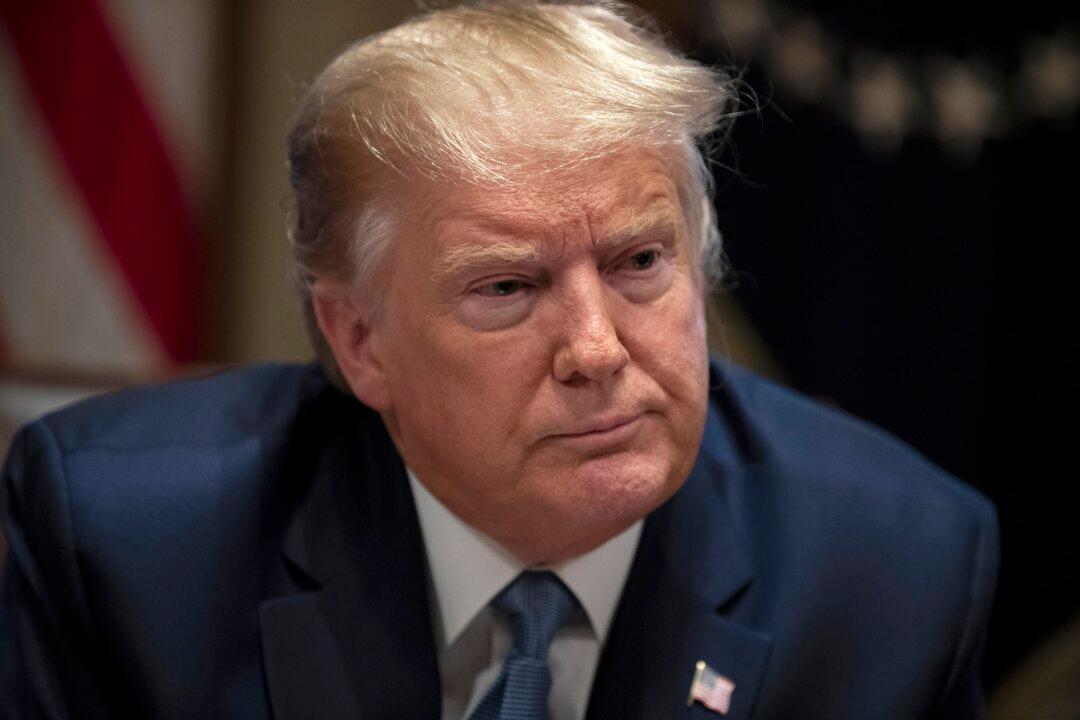President Donald Trump has threatened harsh sanctions against Iraq on Jan. 5 if U.S. troops are expelled from the country, according to White House media pool reports.
Speaking to reporters on Air Force One, the president said that if troops were made to leave, Baghdad would have have to pay Washington for the cost of the air base the United States funded there and the country would face strict sanctions.




